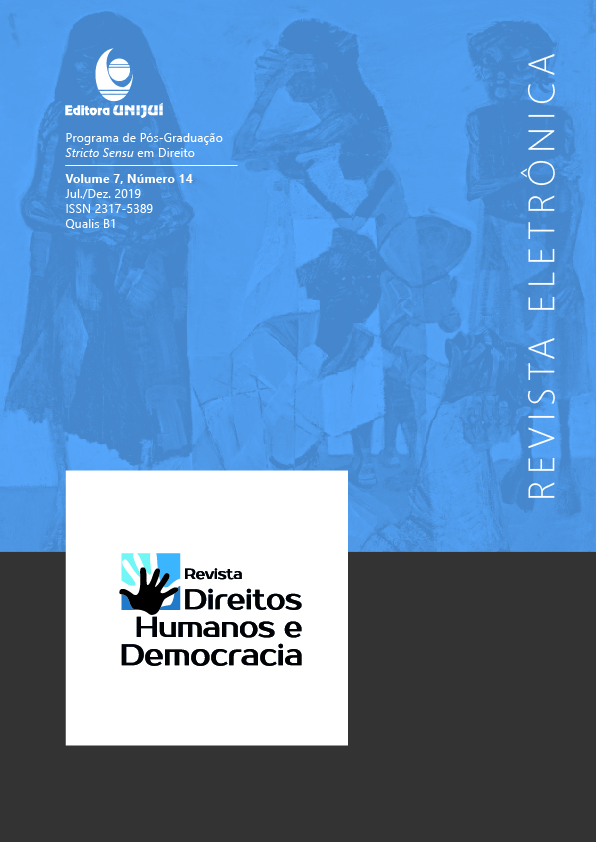LIÇÕES DA TEORIA DA REAÇÃO SOCIAL PARA O ESTUDO DA RESISTÊNCIA AOS CRIMES DE ESTADO
DOI:
https://doi.org/10.21527/2317-5389.2019.14.98-106Abstract
O propósito deste artigo é contribuir para a disseminação de um saber criminológico ainda restrito na academia brasileira: a criminologia de crimes de estado. A partir das produções teóricas de GREEN e WARD, a problemática que instigou essa pesquisa foi a possibilidade de resistir aos crimes de estado. A hipótese de que é possível articular resistência contra crimes de estado através de lições da teoria da reação social é desenvolvida dialogando algumas dessas lições com a criminologia dos crimes de estado e com as consequências da reação social na resistência. A escolha da teoria da reação social decorreu da importância simbólica do “crime”, situando seu manejo pelas agências de controle, pela mídia e pela sociedade civil. Apesar da existência de alguns problemas que a utilização do símbolo “crime” pode trazer, estes são inerentes às disputas do campo hegemônico, restando aos atores sociais dar o tom da sua utilização.
Downloads
Published
How to Cite
Issue
Section
License
By publishing in the Revista Direitos Humanos e Democracia, authors agree to the following terms:
Articles are licensed under the Creative Commons Atribuição 4.0 Internacional (CC BY 4.0), which allows:
Share — copy and redistribute the material in any medium or format;
Adapt — remix, transform, and build upon the material for any purpose, including commercial use.
These permissions are irrevocable, provided the following terms are respected:
Attribution — authors must be properly credited, with a link to the license and indication of any modifications made;
No additional restrictions — no legal or technological measures may be applied that restrict the use permitted by the license.
Notices:
The license does not apply to elements in the public domain or covered by legal exceptions.
The license does not grant all rights required for specific uses (e.g., image rights, privacy, or moral rights).
The journal is not responsible for opinions expressed in the articles, which remain the sole responsibility of the authors. The Editor, with the support of the Editorial Committee, reserves the right to suggest or request modifications when necessary.
Only original scientific articles presenting research results of interest, not previously published or simultaneously submitted to another journal with the same purpose, will be accepted.
References to trademarks or specific products are intended solely for identification purposes and do not imply any promotional endorsement by the authors or the journal.
License Agreement: Authors retain copyright over their articles and grant the Revista Direitos Humanos e Democracia the right of first publication.













